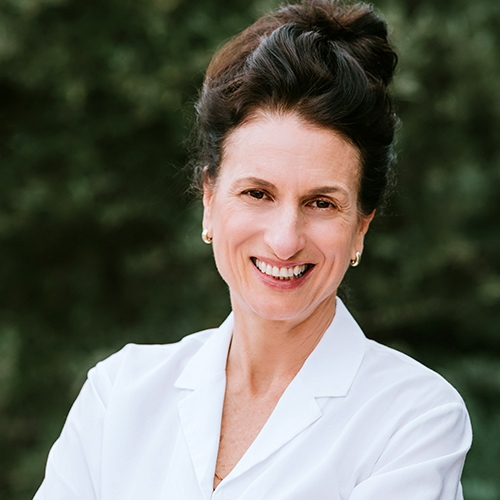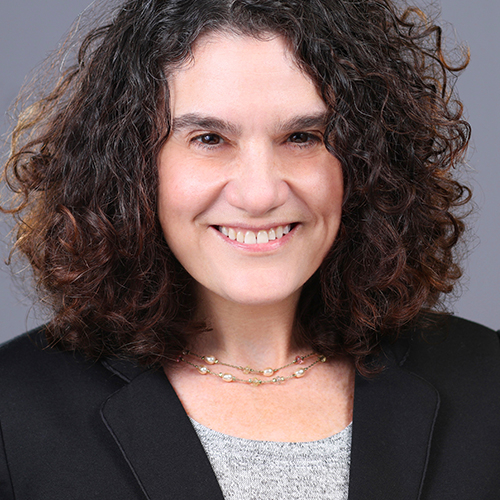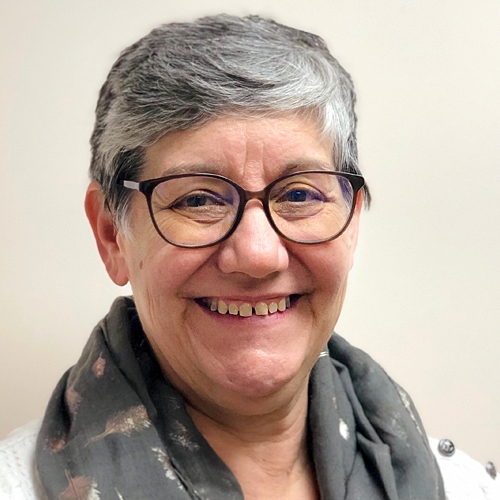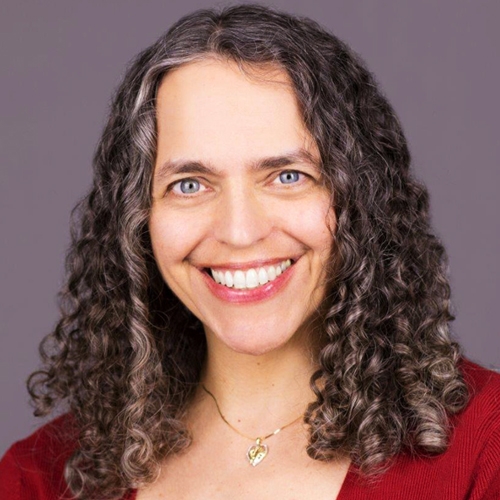 Tongue-tie, Lip Tie & Structure Online Course(s) & Continuing Education
Tongue-tie, Lip Tie & Structure Online Course(s) & Continuing Education
Access the latest clinical skills and research for Tongue-tie, Lip Tie & Structure for Lactation & Breastfeeding professional training. These Tongue-tie, Lip Tie & Structure online courses provide practice-changing skills and valuable perspectives from leading global experts. This Tongue-tie, Lip Tie & Structure education has been accredited for a variety of CEUs / CERPs and can be accessed on-demand, at your own pace.

Ultrasound Analysis of Sucking: Tongue-Tie and Confounders

Catherine Watson Genna BS, IBCLC is an International Board Certified Lactation Consultant in private practice in New York City. Certified in 1992, Catherine is particularly interested in helping moms and babies breastfeed when they have medical challenges and is an active clinical mentor. She speaks to healthcare professionals around the world on assisting breastfeeding babies with anatomical, genetic or neurological problems. Her presentations and her writing are enriched by her clinical photographs and videos. Catherine collaborates with Columbia University and Tel Aviv University Departments of Biomedical Engineering on research projects investigating the biomechanics of the lactating nipple and various aspects of sucking and swallowing in breastfeeding infants. She is the author of Selecting and Using Breastfeeding Tools: Improving Care and Outcomes (Praeclarus Press 2009) and Supporting Sucking Skills in Breastfeeding Infants (Jones and Bartlett Learning 2008, 2013, 2017) as well as professional journal articles and chapters in the Core Curriculum for Lactation Consultant Practice and Breastfeeding and Human Lactation. Catherine served as Associate Editor of the United States Lactation Consultant Association’s official journal Clinical Lactation for its first seven years.
Topic: Breastfeeding Strategies for Tongue-tied Infants - [View Abstract]
Topic: Critical Assessment of Apparent Tongue-Tie - [View Abstract]
Topic: Introduction to Cervical Auscultation - [View Abstract]
Topic: Lactation Support for Infant Biomedical Challenges - [View Abstract]
Topic: Organization of tongue movements before and after frenotomy for posterior tongue-tie: an Ultrasound analysis - [View Abstract]
Topic: Positioning and Latch for Breastfeeding - [View Abstract]
Topic: Ultrasound Analysis of Sucking: Tongue-Tie and Confounders - [View Abstract]
Topic: Using Breastfeeding Supplementers - [View Abstract]
Ultrasound is a useful tool in our quest to understand both normal sucking and breastfeeding impairments. Research depends on both accurate classification of subjects and breastfeeding best practices. This webinar presents findings from our studies of the organization of tongue movements in space and time during breastfeeding using an objective methodology, highlighting some important considerations when conducting or assessing research.


Dr. Gina Weissman began her career as a dentist, receiving her training at The Hebrew University Hadassah Medical School, Jerusalem. She is also a RN nurse and has been working as an IBCLC, Certified Lactation Consultant, since 1999. She teaches courses in human lactation for both medical professionals and future lactation consultants, mentoring them in preparation for the international exam of the IBCLC. Dr. Weissman councils mothers and releases tongue ties at her private breastfeeding clinic, HalavM. She is an expert in teaching mothers Instinctive Breastfeeding and the author of Mother's Milk, a Video Guide to Breastfeeding (Hebrew/Arabic/English).Dr. Weissman is an international lecturer and the president of the Israeli Association of Certified Lactation Consultants.She lives in Israel with her husband Amir and four sons.
Topic: Understanding the Complexities of Tongue Tie: 2020 Updates - [View Abstract]
Background
As far as anterior tongue tie is concerned, there is a growing, vast body of knowledge that has been validated. As for posterior tongue tie, the scientific evidence is lacking, and the assessment tools are not uniform among practitioners.
Medical diagnoses are not part of the scope of practice of Lactation Consultants. Hence, there is a lot of confusion among professionals (both Drs and Lactation Consultants), resulting in over diagnosis and over treatment on the one hand, and under treatment on the other.
Purpose
• To present a unique perspective of an experienced Lactation Consultant who is also a dentist, experienced in diagnosing and treating various types of tongue ties
• To share a conservative clinical thinking process
• To examine the effects of frenotomy on breastfeeding and nipple pain
• To compare the effect of frenotomy on anterior verses posterior tongue ties.
Approach
The discussion will focus on the clinical dilemmas regarding releasing posterior tongue ties and their implications for breastfeeding.
Clinical cases of babies with posterior tongue ties will be shown to demonstrate how exclusive breastfeeding can be achieved in clinical cases with posterior tongue ties that were not released. Cases of anterior and posterior tongue ties that had been released although breastfeeding was going well will also be shown.
Conclusions
Frenotomy is a predictable procedure for anterior tongue tie. However with posterior tongue ties, the outcome of nipple pain and breastfeeding latch are influenced also by different factors.

Understanding the Variations of Active Wound Management and Neuromuscular Re-Education

Robyn Merkel-Walsh, M.A., CCC-SLP/COM® is a Licensed Speech Pathologist with over 25 years of experience. She is employed full time by the Ridgefield Board of Education and runs a private practice in Ridgefield, NJ. She is also an author, lecturer, and consultant for TalkTools® . Robyn specializes in Oral-Placement, feeding, and orofacial myofunctional disorders in the pediatric population. Her publications include, SMILE (Systematic Intervention for Lingual Elevation), Art Talk, Handy Handouts, OPT-S Kit, and she co-authored Sensory Stix, A Sensory-Motor Approach to Feeding, Functional Assessment and Remediation of Tethered Oral Tissues and Oral Placement Therapy Goals for Speech Clarity. She has also written several articles for the TalkTools® website, The ASHA Leader, and Advance Magazine for Speech Pathologists. She has been published five consecutive years at the annual convention of the American Speech-Language and Hearing Association. Robyn received both her undergraduate and graduate degrees from Montclair State University, where she was later invited to be an adjunct/clinical supervisor. She has also taught classes and/or as a clinical supervisor for: Bergen Community College, Seton Hall University and Malloy College. She is a member of American Speech-Language and Hearing Association, American Academy of Private Practice in Speech Pathology and Audiology, New Jersey Education Association, International Association of Orofacial Myology, Oral Motor Institute, Ankyloglossia Bodyworkers , International Consortium of Ankylofrenula Professionals and The Bergen County Apraxia Association. She served a term on the New Jersey Speech and Hearing Association Board of Directors and was the private practice co-chair. She is also the Board Chair of the Oral Motor Institute and the Associate Editor of the International Journal of Orofacial Myology.
There is a better understanding within the fields of medicine and dentistry, lactation, speech-pathology, occupational and physical therapies that functional assessment and treatment is critical for optimal lingual, buccal and labial frena releases. Semantics and terminology however are often confused regarding a treatment protocol. Post-op TOTs care has two phases: 1) Active Wound Management to maintain the integrity of the wound and avoid scarring and re-attachment and 2) Neuromuscular Re-Education to address the underlying muscle and motor- based deficits that are secondary to the oral restriction(s). Both stages of treatment must be considered. This course will outline the two stages, review national scopes of practice for various professionals involved in TOTs care and discuss guidelines for referrals to team members. Specific techniques will be reviewed and categorized as to which stage of treatment is being addressed, which sometimes may overlap.


Leslie has been providing lactation support in Central New Jersey for over 18 years - as a La Leche League (LLL) leader since 2002, an IBCLC at Mercer County WIC from 2014 to 2016, and as a private practice IBCLC since 2011.
Leslie grew up in New York and New Jersey. She graduated from Cook College/Rutgers with a BS in Biochemistry, and from Rutgers University/UMDNJ with a PhD in Biochemistry and Molecular Biology. Leslie's difficulties with early breastfeeding, the help she received from LLL, and challenges with returning to work laid the foundation for her understanding of the importance of skilled and compassionate lactation and infant feeding support.
Topic: Untangling the Big Picture of Tongue-Tie Assessment - [View Abstract]
IBCLCs assess chest/breast and bottle feeding skills, and infant’s oral and body structures and motions that contribute to, or inhibit, the process of feeding as well as post-feeding comfort. When infants present with feeding dysfunction, the root of the issue is often tight frenulum (ties), or asymmetric/tense muscles/fascia, or both. IBCLCs help families navigate the differential assessment of feeding dysfunction, and at the same time support the family’s feeding and milk supply choices. This presentation will examine the bigger picture of assessment when ties are suspected. Because a narrow focus on only the oral cavity can negate other contributing factors, initial and follow-up assessments need to include not just what is going on in the infant’s mouth, but also take into account the infant’s body as a whole, family dynamics, feeding goals, and the creation of a manageable plan for the family. IBCLCs aid with oral/body exercises, referrals for oral evaluations and/or bodywork, help with pre/post frenotomy oral skills, and more - helping to adjust the care plan as infant feeding skills and parent goals grow and change. Developing the skill of big picture assessment is crucial in order to determine the best course of clinical care, meet the families needs, and allow for the best possible outcome.

Will It Hurt? Frenotomy Aftercare Strategies to Optimize Healing Outcomes for the Newborn

Melissa Cole is a board-certified lactation consultant, neonatal oral-motor assessment professional and clinical herbalist in private practice. Melissa is passionate about providing comprehensive, holistic lactation support and improving the level of clinical lactation skills for health professional. She enjoys teaching, researching and writing about wellness and lactation-related topics. Her bachelor’s degree is in maternal/child health and lactation and her master’s degree is in therapeutic herbalism. Before pursuing her current path, Melissa’s background was in education and cultural arts, which has served her well in her work as a lactation consultant and healthcare educator. She loves living, working and playing in the beautiful Pacific Northwest with her 3 children.
Topic: Beyond Fenugreek: An Individualized Approach to Dietary and Herbal Galactagogues - [View Abstract]
Topic: Beyond the Basics of Latch: Support Strategies for Helping Babies when the Basics Aren’t Enough - [View Abstract]
Topic: Common Infant Digestive Health Concerns and Useful Support Strategies - [View Abstract]
Topic: Connection and Care: Virtual Support for Tongue-Tied Infants - [View Abstract]
Topic: Feeding is Movement: Activities for Supporting Optimal Infant Oral Function - [View Abstract]
Topic: Infant Gut Health: Common Concerns and Useful Support Strategies - [View Abstract]
Topic: Infant Oral Assessment: Exploring Anatomy and Function Beyond the Frenulum - [View Abstract]
Topic: Low Milk Production Detective Work: Assessment and Care Plan Considerations - [View Abstract]
Topic: New Thoughts on Infant Pre and Post-Frenotomy Care - [View Abstract]
Topic: Placenta Medicine as a Galactogogue: Tradition or Trend? - [View Abstract]
Topic: Thinking Critically About the Use of Clinical Lactation Tools - [View Abstract]
Topic: Will It Hurt? Frenotomy Aftercare Strategies to Optimize Healing Outcomes for the Newborn - [View Abstract]
There are a few emerging theories and clinical practice ideas when it comes to frenotomy aftercare for the newborn. Clinicians and families sometimes struggle with the idea of how to balance efficient post-frenotomy care while minimizing stress and discomfort of the newborn. While the evidence strongly points to the benefit of frenotomy for tongue-tied neonates, there is little published evidence regarding best aftercare practices. During this presentation we will explore the neonatal experience of pain along with pain management and oral healing strategies. We will also discuss the impact of stress on wound healing and focus on ways to help keep babies calm and happy through the recovery process. For families coping with a tongue-tied baby, it is often a physical and emotional roller coaster ride. This presentation will help provide a well-rounded view of frenotomy aftercare issues as well as clinical, care strategies to optimize healing and feeding for the newborn.


Dr. Sharon A. Vallone is a graduate of Rutgers University (AB Microbiology 1978) and New York Chiropractic College (1986). She completed her Diplomate in Clinical Chiropractic Pediatrics in 1996 through Palmer College and received her appointment as Fellow in Clinical Chiropractic Pediatrics in 2003. Dr. Vallone has a private practice limited to high risk pregnancies and challenged children in Connecticut and is currently the Chair of the Board of Kentuckiana Children’s Center in Louisville, KY and past Vice Chair of the International Chiropractic Association’s Council Pediatric Council. She is an international speaker, author, and editor of the Journal of Clinical Chiropractic Pediatrics. Sharon brings 33+ years of pediatric chiropractic experience with a primary interest in pregnancy, birth trauma, breastfeeding and problems with infant /toddler neurodevelopment.
Topic: Wondering about “The Wanderer?” The Vagus and Ankyloglossia - [View Abstract]
Regulation of the autonomic nervous system is critical for the successful breastfeeding relationship of the dyad. This 1 hour lecture will first, review the anatomy and physiology of the Vagus Nerve (Cranial Nerve X) as it might potentially influence breastfeeding. It will then explore the myriad of ways that the presence of ankyloglossia could potentially influence dysregulation of vagal tone resulting in a myriad of complaints often seen in both members of the dyad when the neonate has ankyloglossia.










